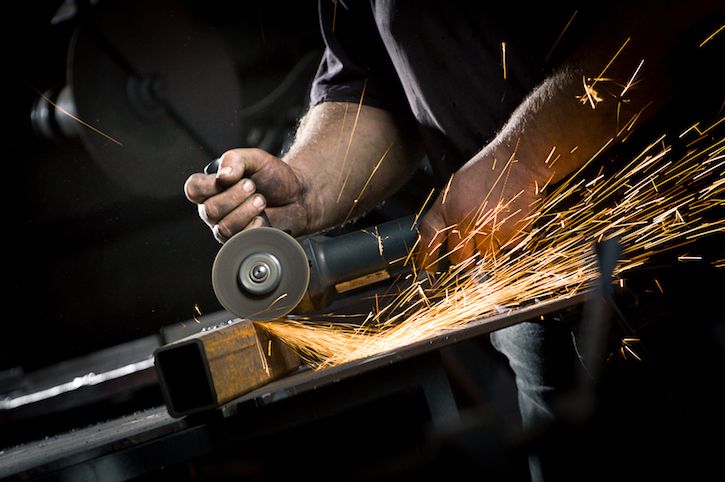What is Domestic metal fabrication? The practice of manipulating different metals to produce something new is known as metal fabrication. The options are essentially limitless. There are literally metal fabrications all around you. There are definitely metal-fabricated components in the computer you are using to read this, possibly even in the case. Most likely, the steel beams in the homes near you were fabricated to support the massive weight. Our lives depend on metal manufacturing and everything it entails, and for good reason.
History Of Domestic Metal Fabrication
According to a copper pendant discovered by archaeologists in northern Iraq that goes back to around 9,000 BCE, humans have been mining and processing metal for the past ten millennia. Around the time of the Industrial Revolution, when sheet metal was much more in demand than before, fabrication shops as we know them today first appeared. The metal fabrication industry was completely altered with the development of the hydraulic press, which allowed producers to apply unheard-of pressures to metal parts.
Large-scale metal manufacturing was required to create the railroads, telegraph lines, tools, printing presses, weapons, and other devices that have played such an important role in our history. These innovations all required machine shops to perform the same joints, cuts, bends and forming operations that they do today. With the development of compressed air, riveting—another crucial component of fabrication—became simpler and more effective.
As the 20th century progressed, metal manufacturing has grown in importance in our daily lives. We currently carry out large-scale machining, from modest family-run businesses to massive industrial facilities with thousands of employees.
Is Metal Fabrication Protection Against Corrosion?
All metals are prone to corrosion, although some metals, like iron and aluminum, can erode quickly if left undisturbed or in an environment that encourages corrosion. However, a small group of metals known as the “Noble Metals” is found naturally in their purest form and corrode very slowly. Despite their superior corrosion resistance, however, factors like price and strength make them less desirable for everyday use. Noble metals include silver, gold, platinum, rhodium, and palladium.
Stainless is a corrosion-resistant metal made of iron and different alloys. Stainless steel, which is available and resistant to corrosion, is one of the metals that is used the most frequently in the world. There are various types of stainless steel, including austenitic, ferritic, Duplex (ferritic-austenitic), and precipitation-hardening (PH). Austenitic stainless steel is the type that resists corrosion the best, and type 316 stainless steel is the grade that is most frequently used in highly corrosive environments.
How Various Metals Are Fabricated?
Products made of metal can be made from a wide variety of metals and their alloys. While most fabrication processes begin with these metals’ sheet metal forms, other metal types may begin as pipes, tubes, or bar stock. Several of the typical metals used in metal manufacturing are listed below:
- Aluminum
- Steel
- Copper
- Tin
- Gold
- Magnesium
- Iron
- Silver
- Nickel
Stock metal shapes, which often include sheet or plate metal, bars, rods, fittings, or wires, are what is accessible for the majority of metals. Depending on the needs of the project, metals like steel and aluminum may also be supplied in pipe or tube form. Due to their high value, precious metals like gold and silver are typically only available in smaller wire, sheet, or bar forms.
Most metals can also go through most fabrication techniques, but there may be restrictions based on the metal’s softness, pliability, and thickness. For instance, the amount of power required and the sorts of procedures used in the fabrication of steel will differ from those used in the fabrication of aluminum due to the more flexible nature of aluminum. Contact a professional offering metal fabrication services to find out more about the various process specifications for a certain metal.
In The End
your production or building requirements can be greatly simplified and made as simple as possible with custom domestic metal fabrication. Additionally, prototyping is simply using it. Due to these benefits, it is a widely sought-after industry and can be the finest choice for your requirements


